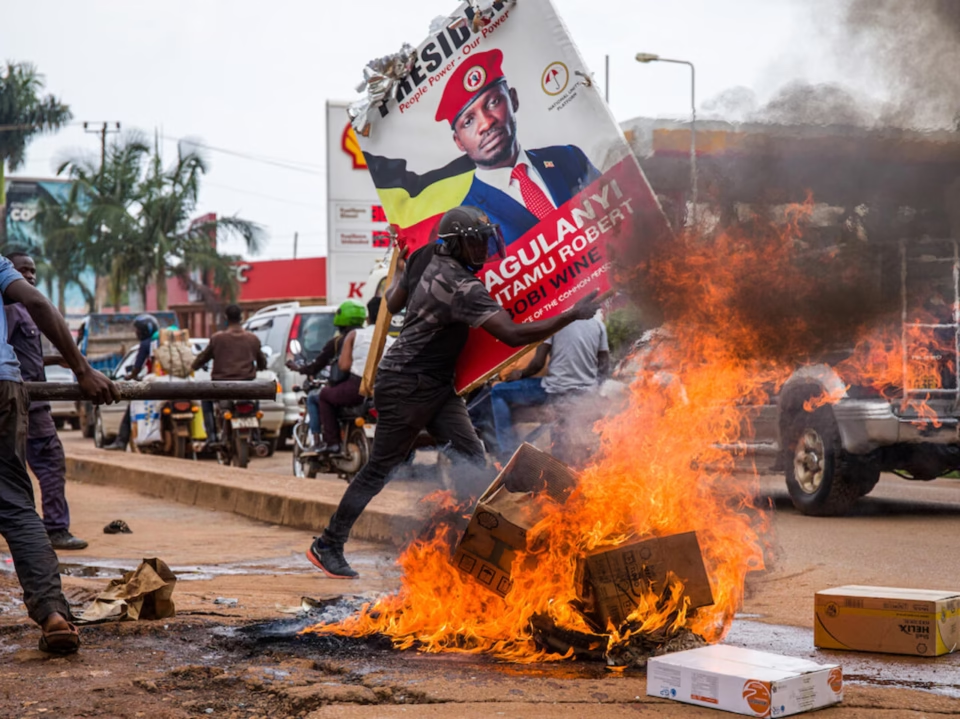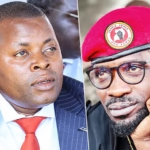A short video clip, shot on an ordinary day along Pallisa Road in Mbale, has stirred extraordinary outrage across Uganda. In the video, two uniformed police officers are seen pulling down campaign posters belonging to the National Unity Platform (NUP) — the opposition party led by Robert Kyagulanyi, better known as Bobi Wine.
To some, it was just a few posters being taken down. But to many others — especially NUP supporters — it felt like yet another sign that political space in Uganda is not just shrinking, but being forcefully torn apart.
According to eyewitnesses, a peaceful group of NUP supporters were marching through Mbale City, holding placards and posters of their candidate. Their procession was met with a swift and forceful police response: tear gas, gunshots in the air, and — caught on video — the tearing down of campaign posters.
The footage, now widely circulated on social media, shows what appears to be deliberate removal of NUP materials by police officers. One officer tears a poster down while bystanders yell in protest.
After the video went viral, the Uganda Police Force issued a statement acknowledging the incident.
‘We have launched an investigation into the allegations,” the statement read. “Appropriate action will be taken based on the findings of the inquiry.”
While this statement offers some reassurance, many are left wondering if real accountability will follow.
Joel Ssenyonyi, spokesperson for NUP, responded with frustration and urgency:
“We’ve seen NRM supporters with huge posters of their candidate all over cities and towns. So why is it a crime if the poster is for NUP?”
His question has echoed online, in market stalls, on boda bodas, and at taxi stages — cutting through the politics and landing squarely in the hearts of Ugandans who feel the rules aren’t applied equally.
To NUP supporters, the incident is not just about torn paper. It’s about the feeling of being silenced — again.
Ugandan electoral laws are clear: tearing down a campaign poster is an offence — unless it violates city regulations or endangers public safety. But critics argue that enforcement is anything but balanced.
“If it’s illegal for NUP to have a poster up, then it should be illegal for NRM too,” says Stella, a university student in Mbale. “But only one side seems to be targeted.”
This sense of injustice is feeding a wider perception: that the police are not neutral enforcers of the law, but participants in a political contest.
Posters might seem like a small matter in a country facing bigger issues — unemployment, health care, and education. But during an election season, visibility means everything.
Removing a candidate’s poster is not just about that one moment — it’s about erasing their voice, their message, and their right to compete fairly.
And when the people doing it are those in uniform, those entrusted to protect all citizens equally, it raises even deeper questions about Uganda’s democracy.
The police say they’re investigating. Ugandans will be watching — not just to see if the officers are punished, but to see if fairness still has a place in the political arena.
As 2026 draws near, incidents like this remind voters that elections aren’t just about what happens on voting day — they’re about what happens every day leading up to it.



